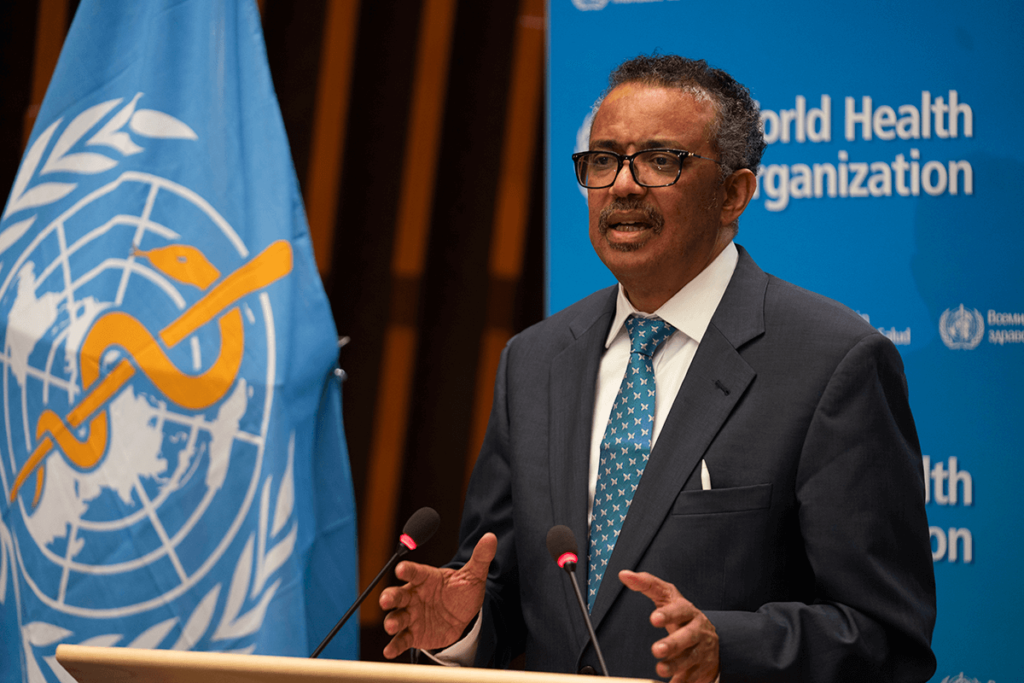Geneva/New York, January 18 – High-income countries appeared to have reneged on their promises for fair and equitable distribution of Covid-19 vaccines when they signed bilateral deals with profit-seeking drugmakers, the World Health Organization said, warning that such practices would amount to a moral failure under the pandemic that has killed over 2 million people worldwide.
“I need to be blunt: the world is on the brink of a catastrophic moral failure – and the price of this failure will be paid with lives and livelihoods in the world’s poorest countries.,” WHO General Director Tedros Adhamon Ghebreyesus said in a forceful speech to a WHO Executive Board meeting in Geneva.
He said more than 39 million doses of vaccine have been administered so far in at least 49 higher-income countries, but just 25 doses have been given in one lowest-income country.
“Not 25 million (doses); not 25 thousand; just 25,” he said.
“But we now face the real danger that even as vaccines bring hope to some, they become another brick in the wall of inequality between the world’s haves and have-nots,” he said. “It’s right that all governments want to prioritize vaccinating their own health workers and older people first.
But it’s not right that younger, healthier adults in rich countries are vaccinated before health workers and older people in poorer countries.”
He urged governments to work as a global family to prioritize those most at risks of severe diseases and deaths from Covid-19 in all countries and cooperate with WHO’s nine-month-old programs known as ACT Accelerator and COVAX for a fair and equitable distribution of the vaccines.
“We’ve overcome scientific barriers, legal barriers, logistical barriers and regulatory barriers.
We have secured 2 billion doses from five producers, with options on more than 1 billion more doses, and we aim to start deliveries in February,” he said.
“Even as they speak the language of equitable access, some countries and companies continue to prioritize bilateral deals, going around COVAX, driving up prices and attempting to jump to the front of the queue. This is wrong.”
WHO said 44 bilateral deals were signed last year, and at least 12 have already been signed so far in 2021.
“The situation is compounded by the fact that most manufacturers have prioritized regulatory approval in rich countries where the profits are highest, rather than submitting full dossiers to WHO,” the WHO chief said. “This could delay COVAX deliveries and create exactly the scenario COVAX was designed to avoid, with hoarding, a chaotic market, an uncoordinated response, and continued social and economic disruption. Not only does this me-first approach leave the world’s poorest and most vulnerable people at risk, it’s also self-defeating.”
“Ultimately, these actions will only prolong the pandemic, the restrictions needed to contain it, and human and economic suffering.”
The WHO chief called (1) on countries that have signed bilateral contracts – and control of supply – with drugmakers to be transparent on these contracts with COVAX, including on volumes, pricing and delivery dates; (2) on vaccine producers to provide WHO with full data for regulatory review in real time, to accelerate approvals, and (3) on all countries introducing vaccines to only use vaccines that meet rigorous international standards for safety, efficacy and quality, and to accelerate readiness for deployment.
United Nations correspondent journalists – United Nations correspondent journalists – United Nations correspondent journalists
United Nations journalism articles – United Nations journalism articles – United Nations journalism articles

